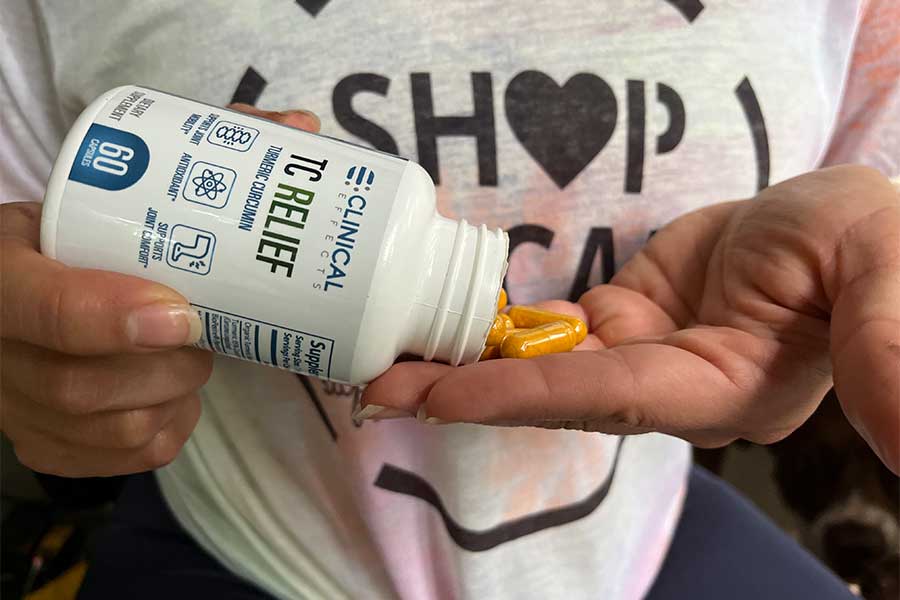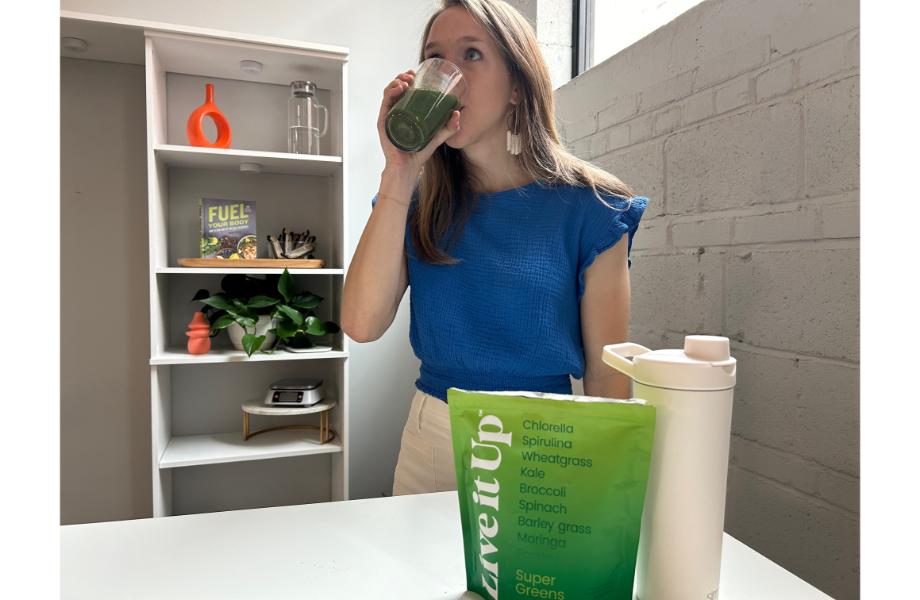The CDC reports that 58% of US adults have taken a dietary supplement in the last 30 days.
Given how our gym equipment buying habits have changed over the last decade, we looked at trends data to see how our supplement use has changed from 2010 to 2023.
This dataset looks at 80 search terms grouped into 14 supplement categories and gender-specific search trends.
Jump to:
- Key Findings
- Protein and Bodybuilding Supplements Declining in Interest
- Sleep and Mental Health Supplements Have Grown Sixfold in the Last Decade
- Gut Health Fastest Growing Supplement Category For Both Women and Men
- Consumers Searching For Supplements By Ingredient, Rather Than By Effect
- Are Hydration Supplements Being Over Marketed?
- Conclusion
- Methodology
Key Findings
- Consumer interest in protein supplements has dropped by 35% from 2010 to 2023.
- The search term “best supplement for anxiety” has increased by 588% in the last decade.
- Consumer interest in natural sleep aids has increased by 574% from 2010 to 2023.
- Greens powder is the fastest-growing supplement. Searches for “best greens powder” have increased by 9736% since 2010.
- Hydration supplements were the fastest growing category in the last year, increasing by 35% (2022 to 2023)
Protein and Bodybuilding Supplements Declining in Interest
Out of the 80 supplements we looked at, only seven had a decline in consumer interest in the last decade.
Six of these seven declining supplements are related to improving our physical appearance—either by helping us gain muscle or lose body fat. These are:
| Supplement | Consumer Interest Since 2010 |
| Bodybuilding supplements | – 64% |
| Workout supplements | – 63.5% |
| Fat burners | – 59.3% |
| Post-workout supplements | – 57.6% |
| Muscle-building supplements | – 36.8% |
| Protein supplements | – 35.0% |
Although interest in protein supplements generally has declined, vegan-friendly protein supplements are rapidly becoming more popular. Specifically:
- Plant-based protein has seen a 3355% growth in consumer interest in the last decade.
- Pea protein has seen a 390% increase in consumer interest in this timeframe.
Plant-Based Protein Powders Are in Demand
Considering consumer interest in plant-based protein supplements has increased by 3355% over the last decade, we wanted to explore the debate of “complete” vs. “incomplete” protein sources—meaning which contain all nine essential amino acids and which are lacking.
We went through sources in the National Library of Medicine1 and The Cleveland Clinic to analyze the protein content, amino acid composition, and nutritional makeup of the most popular plant-based protein sources, both as a protein powder and food.
To work out the amino acid content in protein supplements, we multiplied the mg/g of amino acid by 20, as that’s how much protein is typically found in a scoop of protein powder. We then divided this by the daily amino acid requirements for men and women as per Cleveland Clinic2.
After our research, we concluded that most plant-based protein sources do actually contain all nine essential amino acids in some capacity.
More specifically:
- 14 of the 17 most popular plant-based proteins contain all nine essential amino acids.
- Brown rice protein powder is one of the best plant-based protein supplements for building muscle as it contains the most leucine, lysine, and valine, the three amino acids most involved in building muscle.
- Pumpkin seed and sacha inchi protein powder are the best sources of methionine, the hardest amino acid to find in a plant based diet, which is most responsible for building muscle.
Sleep and Mental Health Supplements Have Grown Sixfold in the Last Decade
Supplements that help improve sleep quality and mental health have seen a rapid growth in interest in the last decade.
More specifically:
- Sleep supplements have seen a 574% growth in consumer interest since 2010.
- The search term “best supplement for anxiety” has increased by 588% in the last decade.
- Melatonin has seen a 692% increase in consumer interest since 2010.
- CBD supplements for sleep have seen a 969% growth in interest since 2010.
- 5-HTP, a supplement often used to help with depression and anxiety, has seen a 396% growth in consumer interest since 2010.
- Interest in magnesium supplements, which can help regulate mood and sleep, have increased by 1252% since 2010.
Our interest in supplements to aid mental health mirrors our interest in prescription mental health medication, with online searches for “how to get antidepressants” rising by 333% since 2010.
Contrasting these findings with our earlier data suggests that we are increasingly seeing supplements as a means of improving our overall health rather than just our physical appearance.
Gut Health Fastest Growing Supplement Category For Both Women and Men
The fastest-growing supplement category in the last decade was gut health—prebiotics, probiotics, and fiber supplements.
From 2010 to 2023 consumer interest in:
- Prebiotics grew by 1262%
- Probiotics grew by 1241%
- Gut health supplements grew by 655%
- Fiber supplements grew by 476%
Both men and women’s interest in gut health supplements grew sharply in this time, with:
- Women’s interest in gut health supplements increased by 4638% since 2010.
- Men’s interest in gut health supplements increased by 1384% since 2010.
This ties back into our earlier point that consumers are looking at supplements as less of a means to improve their physical appearance, and more as a means of improving their health and wellbeing.
And because consumers are becoming more educated, they are aware that the benefits of health supplements go beyond “just health”—with health supplements, like probiotics, having growing bodies of research demonstrating their ability to support performance, recovery, and more.
Consumers Searching For Supplements By Ingredient, Rather Than By Effect
Searches for specific ingredients found in supplements were growing faster than general searches.
Search trends for broad terms have seen some of the biggest declines in the last decade, while searches for their detailed counterparts have grown since 2010.
Some examples of this include:
- The term “best betaine supplements” was searched 6.26x more than the term “best workout supplement”
- Hydrolyzed protein was searched 4.15x more than protein
- Muscle recovery supplements were searched 3.25x more than post workout supplements
This suggests that supplement retailers may benefit from focusing more on the specific ingredients in their products rather than their purported effects.
Consumers are getting more educated on how individual ingredients affect their bodies; therefore, they want highly-specified products with specific ingredients at effective dosages rather than generic “workout powders,” proprietary blends, or marketing hype.
This desire for specific products is also demonstrated in the remarkable growth in interest in herbal supplements and adaptogens:
- Interest in greens powder has grown by 9736% since 2010.
- Interest in ashwagandha has grown by 1535% since 2010.
- Interest in turmeric supplements has grown by 1199% since 2010.
Are Hydration Supplements Being Over Marketed?
Hydration supplements saw a 1018% growth in consumer interest over the last decade.
This category was also the fastest growing in the last year (2022-2023) and from 2019-2023:
| Supplement | Change in Consumer Interest 2010-2023 | Change in Consumer Interest 2019-2023 | Change in Consumer Interest 2022-2023 |
| Electrolytes | 1028.08% | 190.91% | 35.21% |
| Hydration Supplements | 883.61% | 48.51% | 0.00% |
Medical professionals generally agree that electrolyte supplements are only necessary if you sweat excessively. This, combined with the CDC’s findings that we’re only exercising marginally more than we were 10 years ago, begs the question of whether we’re justified in this increase in electrolyte consumption.
The rise in interest in hydration supplements in the last year may well be in part due to the release of Logan Paul and KSI’s Prime sports drink—which markets itself as a “hydration drink”—in 2022, as well the #WaterTok trend on TikTok where influencers showcase their homemade hydration blends (often with a view to manufacture and retail them at a later date).
Many of these #WaterTok videos are tagged with the #weightloss hashtag, which also raises the concern that people might be using hydration supplements to help with feeling satiated when on a calorie-restricted diet.
Conclusion
Consumers see supplements as less of a means of improving their physical appearance and more as a way to support a holistically healthy lifestyle. Supplements to support good sleep, mental health, and gut health have especially grown in popularity.
Our understanding of how specific ingredients affect our bodies is also improving, meaning we are searching more for specific supplements and less for broader “effects-based” terms.
Methodology
This study looks at Google Trends data from 2010-2023 to see how search volumes for commercial-intent (best x) keywords related to various health supplements had increased or decreased in that time period.
It looks at 80 search terms grouped into 14 supplement categories and gender-specific search trends.
About Garage Gym Reviews
Garage Gym Reviews is a go-to hub for home gym owners with resources on everything from the best pre-workout on the market to the best treadmill for a home gym. In 2014, GGR started with one guy and camera: Cooper Mitchell (more commonly known as Coop on the GGR YouTube channel).
Since then, GGR has grown into a robust team of fitness industry professionals ranging from Olympic-level athletes to certified personal trainers and nutrition coaches. The team is committed to helping home gym owners make the best use of their time, money, and performance with unbiased and in-depth reviews on all aspects of fitness.
Fair Use Statement
If you have any questions about the information mentioned above, or are interested in an interview, please feel free to get in touch with Jonathan Weissberg (jonathan@email.garagegymreviews.com), the fitness research director at Garage Gym Reviews. You are welcome to use any of the findings, data, and graphs from this report, but we do ask that you please provide a link back to our study to cite the original data source.
References
- Langyan S, Yadava P, Khan FN, Dar ZA, Singh R, Kumar A. Sustaining Protein Nutrition Through Plant-Based Foods. Front Nutr. 2022 Jan 18;8:772573. doi: 10.3389/fnut.2021.772573. PMID: 35118103; PMCID: PMC8804093.
- Amino acid: Benefits & Food Sources. Cleveland Clinic. (2021, December 21). https://my.clevelandclinic.org/health/articles/22243-amino-acids






